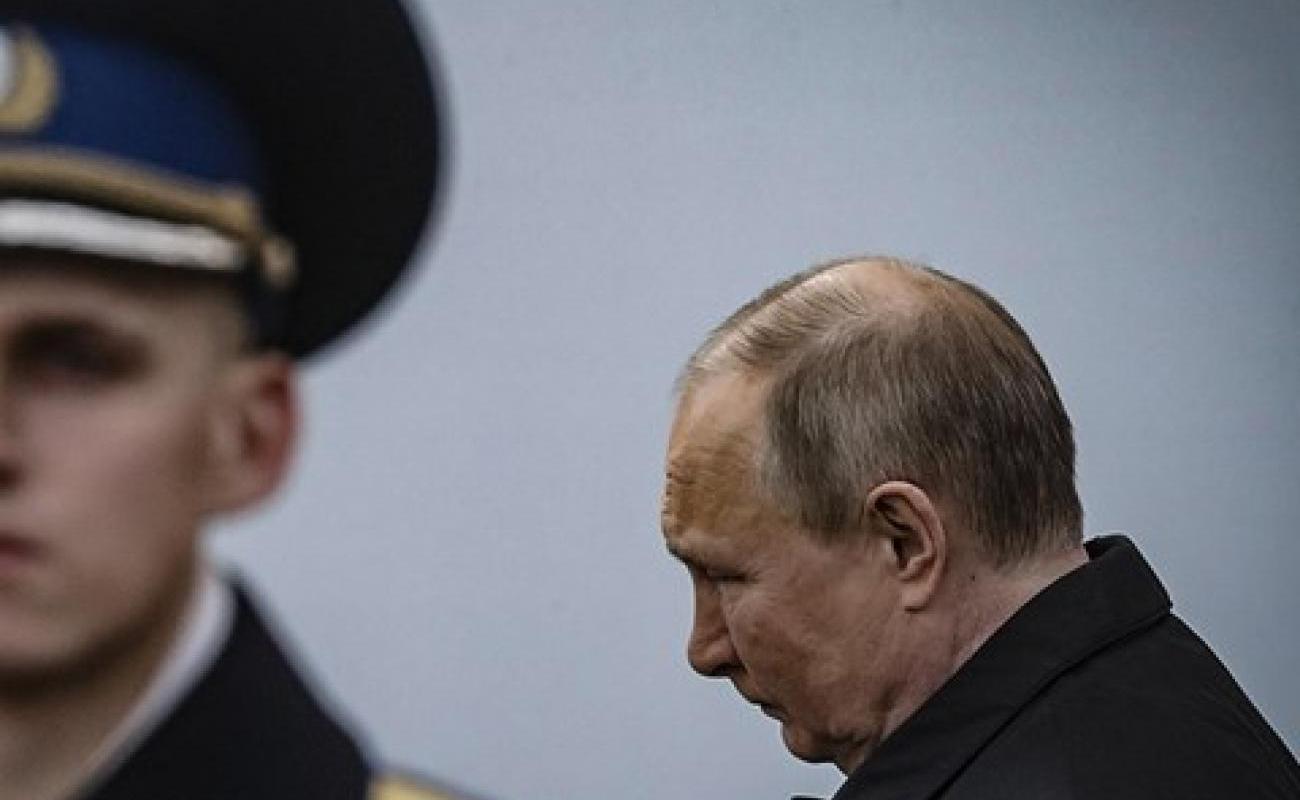Putin’s Last Stand

Russian President Vladimir Putin’s war in Ukraine was meant to be his crowning achievement, a demonstration of how far Russia had come since the collapse of the Soviet empire in 1991. Annexing Ukraine was supposed to be a first step in reconstructing a Russian empire. Putin intended to expose the United States as a paper tiger outside Western Europe and to demonstrate that Russia, along with China, was destined for a leadership role in a new, multipolar international order.
It hasn’t turned out that way. Kyiv held strong, and the Ukrainian military has been transformed into a juggernaut, thanks in part to a close partnership with the United States and Western allies. The Russian military, in contrast, has demonstrated poor strategic thinking and organization. The political system behind it has proved unable to learn from its mistakes. With little prospect of dictating Putin’s actions, the West will have to prepare for the next stage of Russia’s disastrous war of choice.
War is inherently unpredictable. Indeed, the course of the conflict has served to invalidate widespread early prognostications that Ukraine would quickly fall; a reversal of fortunes is impossible to discount. It nevertheless appears that Russia is headed for defeat. Less certain is what form this defeat will take. Three basic scenarios exist, and each one would have different ramifications for policymakers in the West and Ukraine.
The first and least likely scenario is that Russia will agree to its defeat by accepting a negotiated settlement on Ukraine’s terms. A great deal would have to change for this scenario to materialize because any semblance of diplomatic dialogue among Russia, Ukraine, and the West has vanished. The scope of Russian aggression and the extent of Russian war crimes would make it difficult for Ukraine to accept any diplomatic settlement that amounted to anything less than a total Russian surrender.
That said, a Russian government—under Putin or a successor—could try to retain Crimea and sue for peace elsewhere. To save face domestically, the Kremlin could claim it is preparing for the long game in Ukraine, leaving open the possibility of additional military incursions. It could blame its underperformance on NATO, arguing that the alliance’s weapon deliveries, not Ukraine’s strength, impeded a Russian victory. For this approach to pass muster within the regime, hard-liners—possibly including Putin himself—would have to be marginalized. This would be difficult but not impossible. Still, under Putin this outcome is highly improbable, given that his approach to the war has been maximalist from the beginning.
A second scenario for Russian defeat would involve failure amid escalation. The Kremlin would nihilistically seek to prolong the war in Ukraine while launching a campaign of unacknowledged acts of sabotage in countries that support Kyiv and in Ukraine itself. In the worst case, Russia could opt for a nuclear attack on Ukraine. The war would then edge toward a direct military confrontation between NATO and Russia. Russia would transform from a revisionist state into a rogue one, a transition that is already underway, and that would harden the West’s conviction that Russia poses a unique and unacceptable threat. Crossing the nuclear threshold could lead to NATO’s conventional involvement in the war, accelerating Russia’s defeat on the ground.
The final scenario for the war’s end would be defeat through regime collapse, with the decisive battles taking place not in Ukraine but rather in the halls of the Kremlin or in the streets of Moscow. Putin has concentrated power rigidly in his own hands, and his obstinacy in pursuing a losing war has placed his regime on shaky ground. Russians will continue marching behind their inept tsar only to a certain point. Although Putin has brought political stability to Russia—a prized state of affairs given the ruptures of the post-Soviet years—his citizens could turn on him if the war leads to general privation.
The collapse of his regime could mean an immediate end to the war, which Russia would be unable to wage amid the ensuing domestic chaos. A coup d’état followed by civil war would echo what happened after the Bolshevik takeover in 1917, which precipitated Russia’s withdrawal from World War I.
No matter how it comes about, a Russian defeat would of course be welcomed. It would free Ukraine from the terrors it has suffered since the invasion. It would reinforce the principle that an attack on another country cannot go unpunished. It might open up new opportunities for Belarus, Georgia, and Moldova, and for the West to finish ordering Europe in its image.
For Belarus, a path could emerge toward the end of dictatorship and toward free and fair elections. Georgia, Moldova, and Ukraine could strive together for eventual integration into the European Union and possibly NATO, following the model of Central and Eastern European governments after the fall of the Soviet Union.
Though Russia’s defeat would have many benefits, the United States and Europe should prepare for the regional and global disorder it would produce. Since 2008, Russia has been a revisionist power. It has redrawn borders, annexed territory, meddled in elections, inserted itself into various African conflicts, and altered the geopolitical dynamic of the Middle East by propping up Syrian President Bashar al-Assad.
Were Russia to pursue radical escalation or splinter into chaos instead of accepting a defeat through negotiation, the repercussions would be felt in Asia, Europe, and the Middle East. Disorder could take the form of separatism and renewed conflicts in and around Russia, the world’s largest country in landmass. The transformation of Russia into a failed state riven by civil war would revive questions that Western policymakers had to grapple with in 1991: for example, who would gain control of Russia’s nuclear weapons? A disorderly Russian defeat would leave a dangerous hole in the international system.
